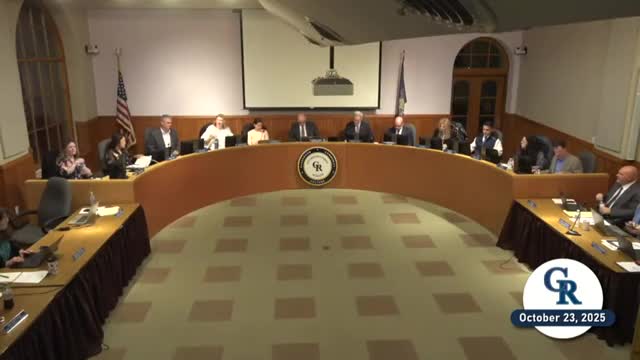Council Rock approves Second Step social-emotional curriculum for K–6, OKs Smart Social platform for parents
Get AI-powered insights, summaries, and transcripts
Subscribe
Summary
The Board approved a one-year Second Step license for K–6 at $26,760 and a Smart Social community subscription at $30,680. Administrators said lessons will be delivered during morning meetings and supplemented at the secondary level with assemblies and announcements. Board members pressed staff on data privacy, scheduling and evaluation.
The Council Rock School District Board of School Directors voted unanimously to approve a one-year license with Second Step for a K–6 social and emotional learning (SEL) program and a separate one-year community subscription to Smart Social, a digital-safety resource for parents and staff.
Superintendent Dr. Timothy Sanko recommended the agreements during his superintendent’s report and education committee materials; the Board approved the $26,760 Second Step digital program and the $30,680 Smart Social community subscription during the meeting.
District staff described Second Step as a grade-level, scripted digital program for elementary classrooms consisting of roughly 20 lessons per grade (26 for sixth grade) that take about 15–30 minutes each and are planned to be delivered during schools’ morning meeting times. Dr. Casey Black and other curriculum staff said the program includes a dashboard for progress monitoring, goal setting and implementation planning. Mr. Forrest Walter of Second Step joined a committee meeting by phone to answer questions, district staff said.
“Teachers will deliver the instruction during existing morning meeting time,” said an administrator involved in rollout planning, adding that principals and teachers will finalize scheduling after board approval. For middle and high schools, administrators said the district will use assemblies, focused presentations and student-wellness announcements because secondary schedules complicate a weekly lesson block.
Board members and members of the public asked about privacy, implementation timing and instructional trade-offs. Board member Joseph Roosevelt asked how the district would protect student data, noting items F–I in the packet mentioned data collection. Dr. Sanko and staff agreed to follow up with Roosevelt to provide details about data security, retention and vendor use. Mrs. Mangold (district staff) described Smart Social’s analytics for administrators and said the platform tracks use so the district can measure parent engagement.
Board members also asked whether the lessons would reduce core instructional minutes. District staff said the SEL lessons are designed to fit into morning meeting time and would not replace language-arts instruction.
Administrators said the district plans to begin rollout this school year pending approval, and that the one‑year licenses allow staff time to collect implementation data; committee members noted the program will be assessed about three times a year to monitor impact.
The votes were unanimous. Miss Khan moved approval of the Second Step agreement; the motion passed. Miss Khan also moved approval of the Smart Social agreement; the motion passed.
The Board packet lists the program cost as $26,760 for Second Step (K–6 license) and $30,680 for Smart Social (community subscription). Staff emphasized that for secondary schools the district will use assemblies and other activities rather than the grade‑level digital lessons.
Why it matters: The Board approved two paid services that will change how the district delivers SEL and how it shares digital‑safety information with families. The questions raised during the meeting — especially about data use and monitoring — mark points the administration said it will answer in follow-up communications to the Board and to the public.
What’s next: Staff said they will coordinate with principals on a phased rollout and provide additional details on data safeguards and evaluation timing.
